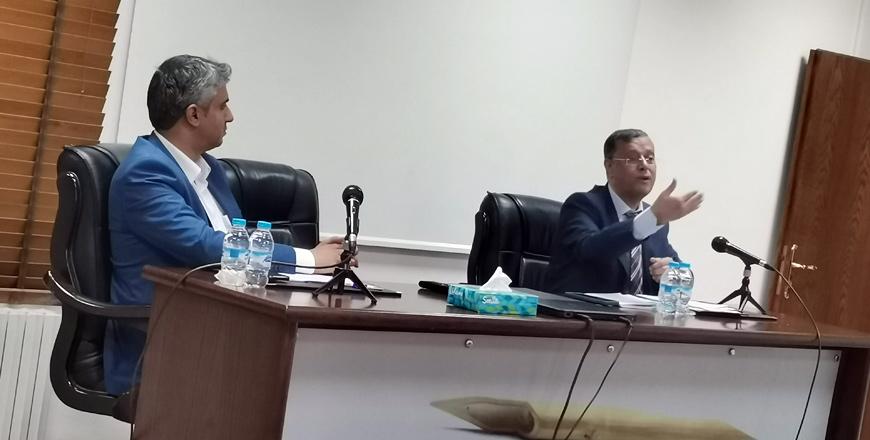You are here
PSD warns against psychic scams, con artists
By Maram Kayed - Aug 04,2018 - Last updated at Aug 04,2018
AMMAN — On the occasion of the International Psychic Day, celebrated on August 5, Jordanian citizens unveiled their stories and opinions about the archaic yet still existing practice of resorting to fortune-telling techniques, black magic, and psychics.
While some think of the practice as “backwards and uncivilised”, others consider it as “a part of a tradition” which “can be useful”.
One of the techniques that has been causing stir is tasseography, a fortune-telling method which is done by interpreting patterns in coffee grounds and is still quite common among Jordanian women.
Soraya Darweesh, a Polish-Jordanian, told The Jordan Times on Saturday “it is quite shocking how, in the 21st century, some people still believe in this. I have educated friends who do this and actually believe in it. Imagine women with PhDs looking at a cup to tell them what they can and can’t do”.
Her sister, Sally Darweesh, gave a more nuanced opiniong. “I am against black magic and sorcery, but I think that reading coffee cups is just something that some women do in their sessions as part of an ongoing tradition,” she stated, adding “some people believe in it and others don’t, but it’s harmless either way, as it’s just for fun and to get a laugh if someone gets a bad telling”.
The acts of psychics are not exclusive to those done inside the house, as they can extend to people who claim to be professionals and charge exorbitant fares for visits, according to the Public Security Directorate (PDS).
PDS’s Spokesperson Amer Sartawi told The Jordan Times: “People who make claims that they can predict one’s future, or better, one’s life, or even make another person’s life worse in exchange for money are all brought in to be investigated with.”
He said such practices are publicised over social media or by word of mouth, noting “citizens who fall for these claims often come to the PDS after their visits saying that they have been the subject of fraud”.
People who do not usually partake in these kinds of practices are also subject to being one-time customers of psychics and sorcerers, as is the case of Zeina Mefleh’s family.
“My sister had a recurring incident in her life: a number of eligible men would propose to her but then never come back. My aunt suggested she should see a psychic and, after a lot of convincing, my mom and sister agreed to it. He suggested this long routine that had many steps, among them was putting on Bakhour and drinking Zamzam when certain relatives came to our house.” Zeina told The Jordan Times.
“Going to his house was a very frightful experience, and so was the routine he suggested. I’m glad that my sister is now married, and that we do not have to do such things ever again,” she recounted.
To some citizens, a line seems to be drawn between psychics and religious priests or sheikhs, like Aya Atmeh, a citizen residing in Jerash who said “I know people who go to sheikhs or priests when they have been feeling down for a while, and feel as if they have changed. The sheikhs and priests don’t charge anything, but instead offer advice and read verses on them. Most of those I know say they feel better afterwards.”
However, the PSD’s spokesperson emphasised the need to look out for con artists and imposters who take advantage of people’s desperate times, posing as religious figures who can “heal” the distressed.
Asked about how the PSD distinguishes between the two, he told The Jordan Times that the Criminal Investigation Unit is usually the one to rule on the matter.
“I can understand people resorting to their faith for help, but if a sheikh or priest asks for money, then it is no different than going to a psychic in my opinion,” said Leen Bahbouh, a citizen residing in Hay Nazal.
Related Articles
AMMAN — The COVID pandemic has resulted in an “infodemic”, noted a media expert during a seminar organised by the Jordan Media Institu
The Public Security Department (PSD) on Wednesday warned citizens and residents of a fraud method followed by con artists who phone their victims from different international numbers and try to sell them valuable materials.
AMMAN — Jordan’s swimming sensation Khader Baqlah has won his second gold medal on Sunday at the 4th Islamic Solidarity Games in Baku, Azerb


















